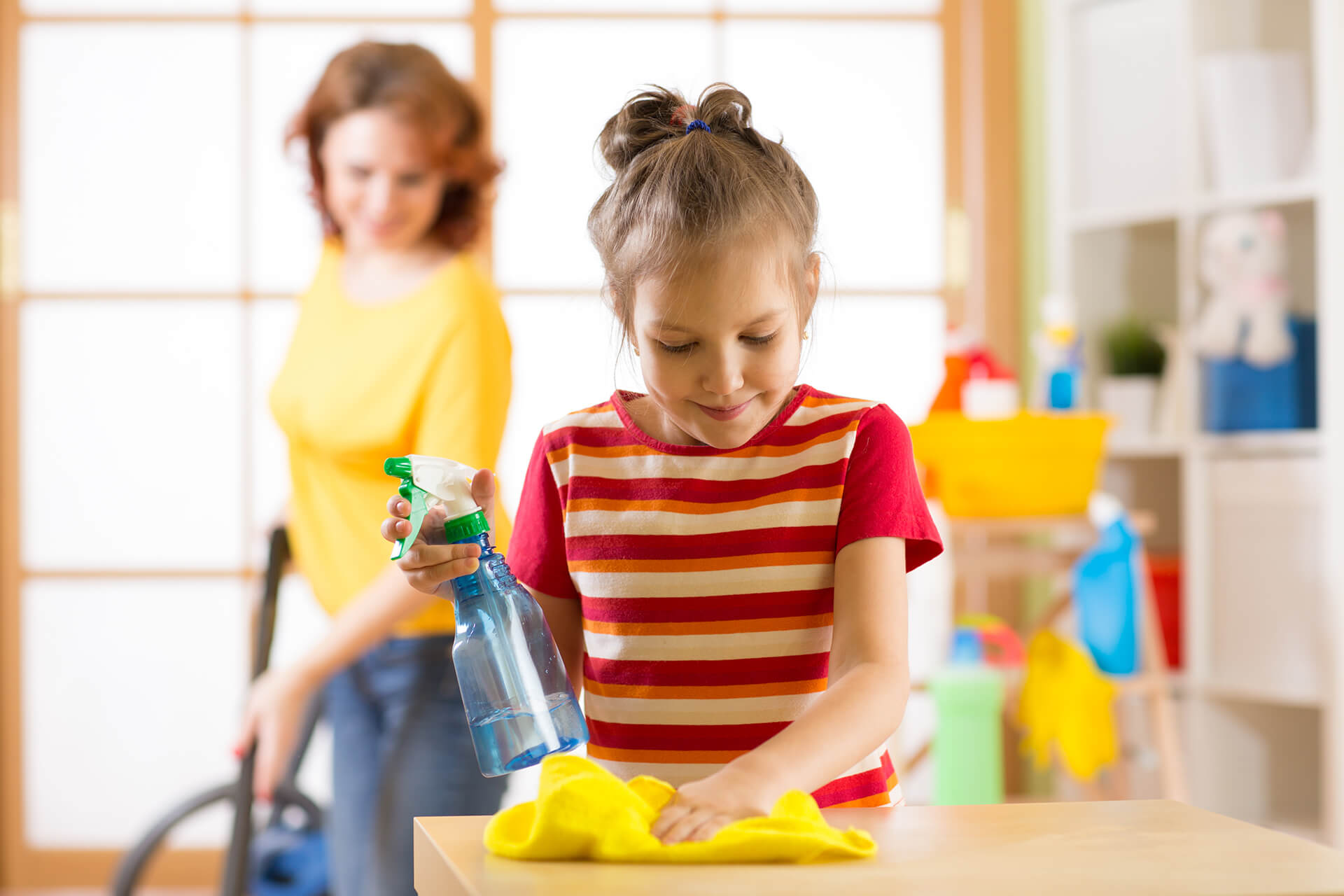Is There a Connection Between Speech Delays and Chemicals?
Don’t be alarmed - cleaning your house on a regular basis will NOT cause speech and language delays. When they first started the study, mothers were asked about their use of household chemicals such as floor and toilet cleaners and solvents during pregnancy. They were asked again about the use of the same chemicals when their child was 14 to 23 months old. Mothers also reported whether they had mold in the home, their use of pesticides, and neighborhood pollution sources.
As you can see, the study took into account more than just the chemicals from household cleaners. Children's language development was measured when they were between 14 and 23 months old and again when they were 20 to 25 months old. The researchers used a standardized test that examines children's understanding and expression of language -- for example, recognition of objects and people, following directions, and naming objects and pictures.
Cleaning your house on a regular basis will NOT cause speech and language delays.
Findings showed that neighborhood pollution, mold in the house and pesticide use were not significantly linked to child outcomes. But the more household chemicals mothers reported using regularly after childbirth, the lower the child language and cognitive outcomes at 2 years of age.
There was no link between chemical use during pregnancy and child outcomes, possibly because mothers reported using significantly fewer chemicals during pregnancy. Most mothers know that you shouldn’t use specific chemicals during pregnancy, but many think that after the baby is born, it’s okay to use whatever you want. This is not true.
While many mothers may use household cleaners and other toxic chemicals when their children are young, low-income mothers may face particular challenges, Jiang said.
Researchers found, for example, they often live in smaller apartments where it may be more difficult to keep children away from chemicals, particularly while they are cleaning. There may also be less of a chance for ventilation to “air out” the house.

Finally, they determined that, through interviews, that pediatricians did not give parents enough information regarding harmful chemicals and the effects those chemicals may have on brain and speech/language development.
Although they did find a correlation between chemicals in early infancy in relation to speech and language, they also stated that more research needs to be conducted to determine HOW the chemicals interfere with development.
 By Stacie Bennett
By Stacie Bennett

